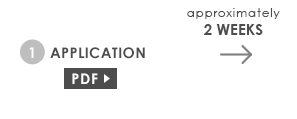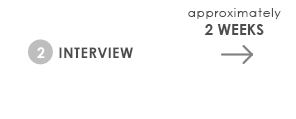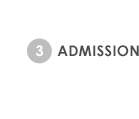
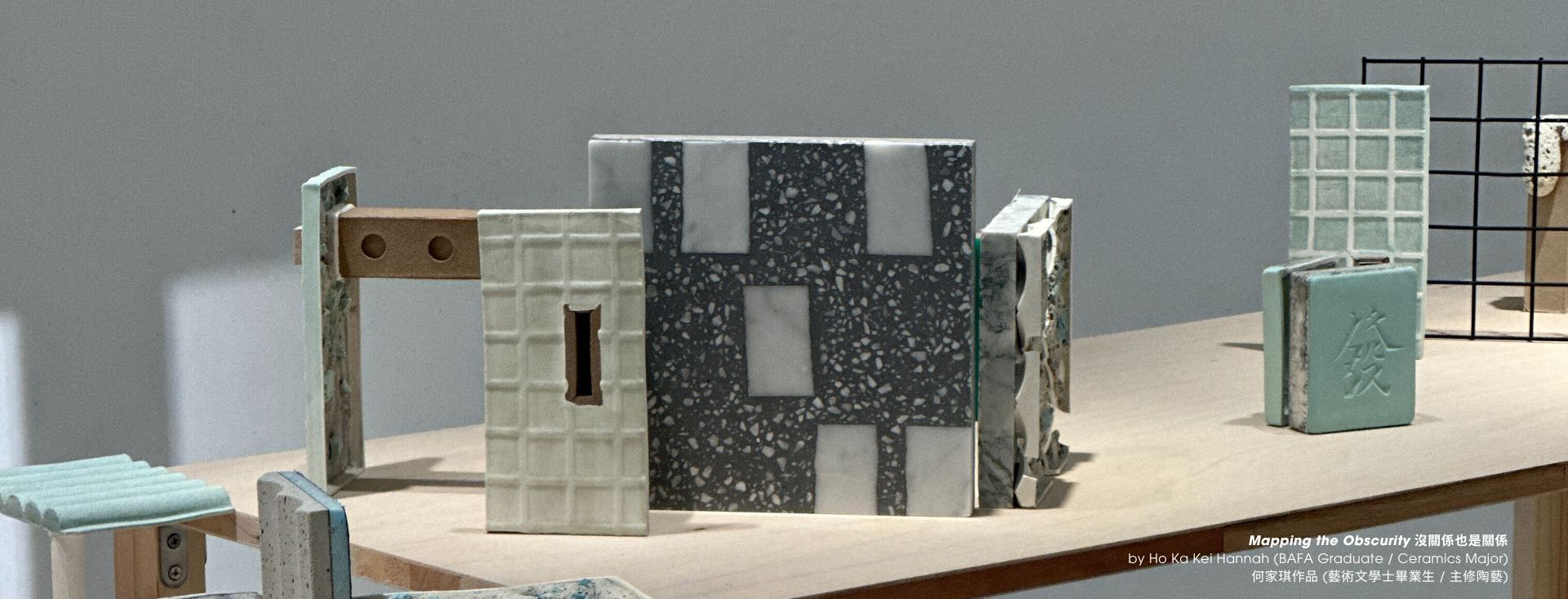
For DSE candidates, School leavers, Working adults, Art & Design practitioners and Retirees who hope to further develop your art learning with an in-depth focus on major studio practice (Ceramics / Painting / Photography / Sculpture)
For programme details and application enquiries, enquirers are always welcome to contact us via our Enrolment hotline: 2922-2822 or email us at: enroledu@hkac.org.hk
PROGRAMME CODE
FA502
This programme is co-presented by Hong Kong Art School & RMIT University.
RMIT is a global university of technology, design and enterprise and a
world leader in Art and Design, with five-star QS ranking for excellence
in higher education.
Degree awarded by RMIT University.
Non-local Higher and Professional Education (Regulation)
Ordinance Registration No.: 210109
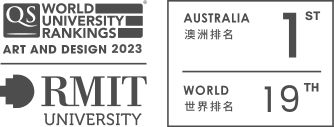
COMMENCEMENT DATE
January 2026
PROGRAMME DURATION
3 Years
TUITION FEE (HK$) (2025 Intake)
| 1st Year | 2nd Year | 3rd Year | Total |
| 103,306 | 103,306 | 103,306 | 309,918 |
The fees for the subsequent years (after 2025) will be subject to annual increment capped at the Composite Consumer Price Index (CCPI) to be announced by the Government.
Tuition Fee level subject to annual review
Fee to be settled by 6 installments, 2 installments per year (Tuition Fee Deposit which forms part of the 1st installment may be applied).
This programme (referring to both first year first degree & top-up degree entries) is eligible under the Non-means-tested Subsidy Scheme (NMTSS) provided by the Government.
In the 2024/25 academic year, the subsidy amount is HKD34,390 per student per year.
For details, please visit: https://www.cspe.edu.hk/en/nmt/index.html.
APPLICATION PROCEDURES
Year-round application is welcome
AIMS & OBJECTIVES
The RMIT Bachelor of Arts (Fine Art) (the programme) aims to develop students’ individual creative growth and establish strong perceptual, analytical and conceptual awareness within the context of contemporary fine art practice. It enables students to achieve a high level of confidence and personal integrity associated with the best artistic practice, and to realise his or her potential as a professional artist. Graduates are multi-skilled and may pursue careers as independent professional artists or within the diverse industries and cultures associated with the fine arts. The three-year programme is jointly presented by RMIT University and the Hong Kong Art School, enabling students to benefit from international and local perspectives.
PROGRAMME FEATURES
- An established fine art programme celebrating its 25th Anniversary of development in Hong Kong, with approving and unparalleled impact on the ongoing development of local art ecology
- A dynamic fine art programme that crosses the boundaries of cultures and ages, leading to immense diversity in the learning atmosphere and opening up endless possibilities for students
- With a study schedule that is suitable for both school leavers and working adults, and a study mode that advocates work-life balance
- Combining intensively studio-based and practical learning with stimulating theoretical and academic discourse in contemporary art
- Benefiting students with international and local perspectives, bringing in regular, direct and face-to-face learning opportunities with Australian artists-lecturers and local lecturers who are also practicing artists
HOW WILL IT BE DELIVERED?
- Studio or workshop-based classes with emphasis on individual progress and development through visual and academic research related to both conceptual and technical development
- Face to face and online lectures
- Reflection and analysis of art work through individual tutorials and group critiques
- Local field trips, and visits to workshops, museums, galleries and art studios
- Extra-curricular overseas field trips may also be available
PROGRAMME ARTICULATION
Graduates from Bachelor of Arts (Fine Art) programme may choose to continue their study in the Master of Fine Art programme.
Remarks:
The Bachelor of Arts (Fine Art) programme is accredited by the Hong Kong Council for Accreditation of Academic and Vocational Qualifications (QF Level 5) for a period from 1 January 2013 to 31 December 2029 (QR Registration Number: 12/001247/L5).
- Programme terminology is in accordance with partner university.
- This programme is of high quality and has international recognition. However, it is a matter of discretion for individual employers to recognize the qualification to which this programme may lead.
The three-year Bachelor of Arts (Fine Art), Hong Kong program is structured in four studio specialisations namely:
(i) Ceramics;
(ii) Painting;
(iii) Photography;
(iv) Sculpture.
The students will align their studies with one of the above studio specialisations areas and will select 3 courses per semester including a Fine Art Studio, a Workshop, Art History+Theory+Cultures and/or a University Elective.
The program consists of 288 credit points and 324 QF Credits (or 3,240 notional hours* in total).
*Notional hours include Taught hours and Learners Directed / Self Study hours
The academic year consists of 2 semesters. Each semester includes 1-2 intensive week(s) of ‘Intensive Seminar’ conducted by lecturers from RMIT University and 12-14 regular weeks of ‘Regular Teaching Weeks’ conducted by lecturers from the Hong Kong Art School. The program will invite appropriately qualified industry experts for specialist lectures as appropriate to the course. Students are expected to attend all lessons of all courses in both Intensive Seminar and Regular Teaching Weeks.
| Program Plan |
| There is one Program Plan for the Bachelor of Arts (Fine Art). There are four studio specialisation areas within the plan: Ceramics, Painting, Photography & Sculpture. |
| Studio Courses: Fine Art Studios 1-6 |
| Students can select from a range of course offerings in the Fine Art Studio Courses across the four studio specialisations. Fine Art Studios 2-5 are delivered through a vertical model (years 1 & 2 combined or years 2 & 3 combined). |
| Workshops: Workshops 1-6 |
| Workshops are primarily designed to develop a range of skills as it relates to studio practices. Students can select from a range of workshops within the four studio specialisations. Workshops 2-5 are delivered through a vertical model (years 1 & 2 combined or years 2 & 3 combined). |
| Art History+Theory+Cultures: 1-4 |
| AHTC 1 introduces the student to select themes and practices in contemporary art. AHTC 2-4: draw on a range of thematics as it relates to contemporary art practice. These courses will provide students with the skills and knowledge to establish a strong critical framework for their studio practice. |
| University Electives: |
| University Electives provide students with a range of courses that add value to their degree, pursue specific individual interests and to explore new areas of enquiry. |
The program places a strong focus on making art. The two sets of courses which directly support this are; the Fine Art Studio courses and Workshop courses. To nurture studio training and taking into consideration the different teaching and learning delivery models, the program employs the allocation of ‘Teacher Guided Hours’ (Taught Hours) and ‘Learning Directed Hours’ across all courses. The program employs a unique rationale on the allocation of contact hours for courses. Though the number of credit points for each course is standardised as 12 or 24, the number of contact hours varies from one category of courses to another. Generally, studio-based courses that require more intensive studio practice occupy a more significant number of contact hours, as hands-on practice and onsite experience inside studios normally contribute most to the learning outcomes of relevant courses.
Progression of Study
In year one of the program, students are exposed to a range of skills and knowledge to assist them in development, experimentation and investigation of ideas, process, materials and methods in the production of creative artworks through directed projects. The studio courses are supported by theory and history courses which help contextualise studio practice. We emphasise experimentation and play with materials and form, as well as students working within their disciplinary field and in interdisciplinary ways. At all stages of the program we are moving students from dependence to independence in their thinking and making. Research is often practice led and is developed as both visual and theoretical.
In year two, students continue to develop ideas and skills, form and content within a framework of experimentation and self-directed projects, supported by courses designed to further their skills in theory and history as well as a university elective, to broaden the scope of their ideas as it relates to studio practice. We recognise that ideas can come from diverse disciplinary fields and personal experiences in and of the world. We encourage each student to think critically about what they want to make art about (content). Why they want to make art about certain ideas (rationale). How they will go about developing their ideas into artworks (processes, materials, methods, forms).
In year three, students will develop and articulate a self-directed studio work proposal, as it relates to their own developing individual art practice and research interests. This takes into consideration, historical and contemporary discourses which contextualises their art practice within broader global frameworks and communities of practice, and is supported by critical feedback and reflection. Students are also exposed to real world industry experiences and expertise through the Art Enterprise Workshop (Workshop 6).
Upon successful completion of the program, students will have developed an independent studio-based art practice which is evidenced by a body of resolved creative artwork, which prepares them for the creative industries and/or further study.
The table below indicates the Program Map by Year and Semester.
| PROGRAM MAP | Semester 1 (Jan-Jun) | Semester 2 (Jul-Dec) |
| YEAR 1 | Fine Art Studio 1 24 credit points Introductory Studio | Fine Art Studio 2 24 credit points (co-taught with Fine Art Studio 4) |
| Workshop 1 12 credit points Introductory Workshop | Workshop 2 12 credit points (co-taught with Workshop 4) | |
| Art 1: History+Theory+Cultures 12 credit points | Art 2: History+Theory+Cultures 12 credit points | |
| YEAR 2 | Fine Art Studio 3 24 credit points (co-taught with Fine Art Studio 5) | Fine Art Studio 4 24 credit points (co-taught with Fine Art Studio 2) |
| Workshop 3 12 credit points (co-taught with Workshop 5) | Workshop 4 12 credit points (co-taught with Workshop 2) | |
| University Elective 12 credit points | Art 3: History+Theory+Cultures 12 credit points | |
| YEAR 3 | Fine Art Studio 5 24 credit points (co-taught with Fine Art Studio 3) | Fine Art Studio 6 24 credit points Capstone Studio |
| Workshop 5 12 credit points (co-taught with Workshop 3) | Workshop 6 12 credit points Art Enterprise Workshop | |
| Art 4: History+Theory+Cultures 12 credit points | University Elective 12 credit points |
For more details of programme structure and course offerings, please refer to RMIT Art School Portal website: https://artschoolportal.com/programs/bachelor-arts-fine-art-hong-kong-bp201/
RMIT is a global university of technology, design and enterprise and a world leader in Art and Design*.
Founded in 1887, RMIT University (formerly known as the Royal Melbourne Institute of Technology), is one of Australia’s original education institutions, and is now the largest tertiary institution in the country, with three campuses in Melbourne, two campuses in Vietnam and a high-performing research and industry collaboration centre in Spain.
*Ranked 1st in Australia and 19th globally (QS World University Rankings by Sub-discipline 2023)
MINIMUM ENTRY REQUIREMENTS
All applicants are assessed against the program’s academic entry requirements and English language entry requirements, and subsequently shortlisted for an interview with academic staff where a portfolio is presented.
ACADEMIC ENTRY REQUIREMENTS
To be eligible for entry into the program, applicants must meet one of the following academic entry requirements:
- A minimum of 15 points from the best 5 subjects, including 3 core subjects, of the Hong Kong Diploma of Secondary Education (with points calculated on the level achieved in each subject, with a minimum level 2 for all subjects); or
- A minimum of 6 points from the best 3 subjects in the Hong Kong Advanced Level Examination e.g DDD (points calculated as follows: A=5, B=4, C=3, D=2, and E=1); or
- Equivalent senior high school results recognised by RMIT; or
- Diploma in Fine Art or Higher Diploma in Fine Art from Hong Kong Art School; or
- Diploma, higher diploma or associate degree equivalent to the Hong Kong Qualifications Framework (HKQF) Level 4 or Australian Qualification Framework (AQF) Level 5 from a recognised education institution.
Top-up degree Option (Year 2)
- Students who have completed a Diploma in Fine Art or Higher Diploma in Fine Art from Hong Kong Art School; or
- Students who have completed any other diploma, higher diploma or associate degree in relevant disciplines equivalent to the Hong Kong Qualifications Framework (HKQF) Level 4 or Australian Qualification Framework (AQF) Level 5 from a recognised education institution.
Applicants for either entry pathway who do not meet the above entry requirements may be considered for entry on a case by case basis based on their equivalent qualifications or combination of qualifications and experience.
ENGLISH LANGUAGE ENTRY REQUIREMENTS
All applicants (applicable to both Year 1 and Top-up Degree Option (Year 2) entries) are required to provide evidence of English language proficiency for admission into this Program in accordance with the requirements published on RMIT’s website from time to time. RMIT-approved English proficiency tests include the following:
- IELTS (Academic): minimum overall band of 6.5 (with no individual band below 6.0); or
- TOEFL (Internet based test – iBT): minimum overall score of 79 (with minimum of 13 in Reading, 12 in Listening, 18 in Speaking, and 21 in Writing); or
- Pearson Test of English (Academic) (PTE (A)): minimum score of 58 (with communication band less than 50); or
- Cambridge English: Advanced (CAE) or Cambridge English: Proficiency (CPE): minimum of 176 with no less than 169 in any component; or
- RMIT English Worldwide (REW) Advanced Plus or equivalent.
Where an English language proficiency test is used for admission, the test must be taken no more than two years prior to the RMIT program commencement date.
Where an RMIT English Worldwide (REW) proficiency certificate is used, the REW certificate must be obtained no more than 12 months prior to the program commencement date.
Applicants who have not completed one of the English proficiency tests listed above or as published on the RMIT website from time to time can be deemed to have met the English language entry requirements if they can provide evidence of one of the following:
- Hong Kong Diploma of Secondary Education with a Score of 4 or more in English Language; or
- A minimum of 2 years of a tertiary qualification equivalent to an Australian Diploma or higher within the past 5 years where English is the language of teaching and assessment; or
- The equivalent of 1 year of a university degree within the last 2 years where English is the language of teaching and assessment; or
- An RMIT recognised qualification within the last 2 years unless stated otherwise.
Applicants who do not meet the above entry requirements, but previously met the English language requirements as outlined on RMIT’s website and who have evidence of extensive professional experience in an English-speaking organisation, may be considered for entry on a case by case basis.
ENROLMENT
- Please make sure you meet the application requirements of the programme you are applying for.
- Applicants who do not have evidence of English as outlined under English Language Entry Requirements but have extensive professional experience in English speaking organisations, may be considered for entry on a case by case basis.
- A non-refundable application fee of HK$200 will be levied.
- Please submit the completed Award-bearing Programme Application form (Form No. HKAS002(BAFA))together with relevant supporting documents, and application fee via one of the following ways:
- In person to the Enrolment Office of Hong Kong Art School.
Address: Hong Kong Art School Chai Wan Campus (Rm 819, 8/F Youth Square, 238 Chai Wan Road, Chai Wan)Opening Hours: Monday – Friday 9am – 7pm Closed on Saturdays, Sundays and Public Holidays - By post to the Enrolment Office of Hong Kong Art School (address as above)(Please DO NOT mail the CASH by post)
- By Bank Account Transfer
Please transfer the payment to the following bank account, and email the remittance advice with your name and programme code (“FA502” for Bachelor programme) quoted to application@hkac.org.hk
Bank Name: HSBC
FPS ID: 107697286
Account No.: 022-009575-001
Account Name: Hong Kong Arts Centre
*Please be reminded that all bank charges incurred (if applicable) would be absorbed by the applicant/payment sender
- In person to the Enrolment Office of Hong Kong Art School.
Remarks:
- For application to the Bachelor of Arts (Fine Art) programme, you will be requested to indicate your major area of study on the Application Form.
- You will be expected to submit a Folio, in the form of a CD rom, together with your application. The Folio should reflect your competency / attainment in the major area of your choice. For details of the Folio content, please refer to Section F of the Application Form.
SCHOLARSHIP
Scholarships opportunities are available.
EXEMPTION POLICY
Students may apply for exemption from subject(s) in which they have prior training. Each application for exemption is considered on its merits and in accordance with RMIT University’s policies on Recognition of Prior Learning and Credit Transfer.
| Academic Year 2022 |
| AU Hoi Lam |
| CHAN Kiu Hong Joe |
| CHAN See Kwong Ray |
| CHAN Sum Yan Tap |
| CHENG Halley |
| CHEUNG Wai Sze Rachel* |
| FUNG Ho Yin |
| Dr. Caroline HA THUC |
| KEUNG Chi Ming Jimmy |
| Dr. LAI Kin Keung Edwin |
| LAM Laam Jaffa |
| LAU Tak Ming Rorce |
| LAW Man Lok |
| LEE Pik Wai Louise |
| LEUNG Chin Fung Jeff |
| LEUNG Man Ho Steven |
| LO Ho Yee Connie |
| LO Man Him Virginia |
| PAU Ellen |
| SIN Long Yee Stephanie |
| SIU Kam Han |
| SIU Wai Hang |
| TAM Hiu Yee Rebeka |
| TSANG Chui Mei |
| TSANG Man Fu Matthew |
| TSE Yim On |
| WAN Chi Chung Simon |
| wen yau |
| WONG Hoi Lam Karen |
| WONG Lai Ching Fiona |
| YEUNG Tak Ming Paul |
| YU Yeuk Mui Cally |
* Programme Coordinator
BA(FA) students may apply for financial assistance schemes provided by the Government, with details as follows:
- Non-means-tested Subsidy Scheme for Self-financing Undergraduate Studies in Hong Kong (NMTSS)
- Non-means-tested Loan Scheme for Post-secondary Students (NLSPS)
- Financial Assistance Scheme for Post-secondary Students (FASP)
- Student Travel Subsidy for Tertiary of Post-secondary Students (STS)
And /or
- Deduction of Tax for Training
Frequently Asked Question
Why choose Bachelor of Arts (Fine Art) Programme codelivered by Hong Kong Art School and RMIT University?
The Bachelor of Arts (Fine Art) is codelivered by Hong Kong Art School and RMIT University, Australia, with the degree being awarded by RMIT University.
Hong Kong Art School (HKAS) founded in 2000, is a division of the Hong Kong Arts Centre (HKAC). HKAS is an accredited institute staffed by a group of dedicated artists and art educators, who are active and distinguished practitioners in the field. HKAC, established in 1977, is the first independent non-profit multiarts institution in Hong Kong.
RMIT is a global university of technology, design and enterprise and a world leader in Art and Design*. Founded in 1887, RMIT University (formerly known as the Royal Melbourne Institute of Technology), is one of Australia’s original education institutions, and is now the largest tertiary institution in the country, with three campuses in Melbourne, two campuses in Vietnam and a high-performing research and industry collaboration centre in Spain. *Ranked 1st in Australia and 19th globally (QS World University Rankings by Subdiscipline 2023)
What are the programme features of the Bachelor of Arts (Fine Art) programme?
The Bachelor of Arts (Fine Art) programme is delivered in an inclusive and highly diverse learning environment and combines intensive studio-based learning and is supported by theoretical and historical discourses in contemporary art The programme also provides global perspectives in contemporary art and is delivered by Australian and Hong Kong artists and academics and enables graduates to continue their studies within a range of master’s degrees.


